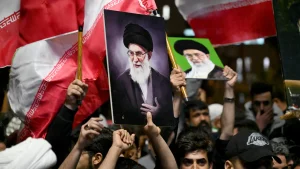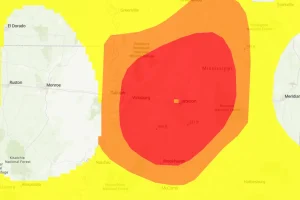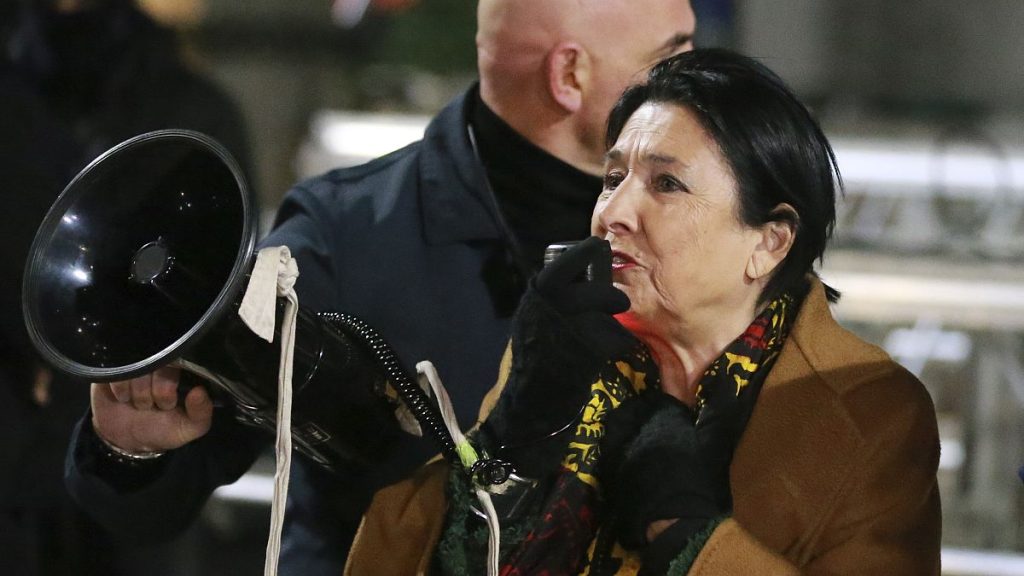The Georgian political landscape is embroiled in a deep constitutional crisis, stemming from contested parliamentary elections and the subsequent appointment of a new president. Outgoing President Salome Zourabichvili has vehemently rejected the legitimacy of the parliament and its chosen successor, Mikheil Kavelashvili, denouncing the entire process as a “parody” and a “mockery of democracy.” Zourabichvili’s stance is rooted in her belief that the October 26th parliamentary elections, which returned the ruling Georgian Dream party to power, were rigged with Russian assistance. This alleged interference has fueled widespread protests and further deepened the political divide within the country. Zourabichvili has vowed to remain in office past the end of her term, asserting that the parliament lacks the authority to select her replacement. This unprecedented move has set the stage for a potential power struggle with the incoming president and heightened the existing political tensions.
The appointment of Mikheil Kavelashvili, a former footballer and hardline critic of the West, has further exacerbated concerns about Georgia’s democratic trajectory and its aspirations for closer ties with the European Union. Kavelashvili’s association with the People’s Power movement, known for its strong anti-Western rhetoric, has raised alarm bells among opposition figures and international observers who view his presidency as a consolidation of Georgian Dream’s grip on power and a move away from European integration. Kavelashvili’s role in drafting a controversial “foreign influence” law, mirroring similar legislation used in Russia to suppress dissent, has further cemented these concerns. This law, which requires organizations receiving significant foreign funding to register as “pursuing the interest of a foreign power,” has been criticized for potentially stifling civil society and curtailing freedom of expression.
The disputed parliamentary elections, which saw Georgian Dream retain power amidst allegations of irregularities, have sparked widespread unrest and protests. These demonstrations gained momentum following Georgian Dream’s decision to postpone EU accession talks until at least 2028, a move prompted by a European Parliament resolution criticizing the elections as neither free nor fair. The resolution pointed to instances of violence, bribery, and double voting observed by international monitors, leading some EU lawmakers to call for a re-run of the elections. This postponement of accession talks represents a significant setback for Georgia’s European aspirations and underscores the growing concerns within the EU regarding the country’s democratic backsliding.
The “foreign influence” law, a key point of contention between the ruling party and its critics, has been widely condemned as an attack on democratic freedoms. This legislation, reminiscent of similar laws used in Russia to target critical organizations, has raised concerns about its potential misuse to suppress dissent and restrict civil society activities. The law’s passage has further strained Georgia’s relationship with the EU, which had previously granted the country candidate status conditional on fulfilling specific reforms. The decision to postpone accession talks reflects the EU’s growing unease with Georgian Dream’s governance and its perceived drift towards authoritarianism.
President Zourabichvili’s defiance of the parliament and her refusal to recognize Kavelashvili’s legitimacy have plunged Georgia into uncharted political waters. Her insistence on remaining in office challenges the established constitutional process and creates a situation of potential dual power. The opposition’s support for Zourabichvili further complicates the political landscape and sets the stage for a protracted power struggle. This standoff raises fundamental questions about the rule of law and the functioning of democratic institutions in Georgia.
The ongoing political crisis in Georgia reflects a deeper struggle over the country’s future direction and its relationship with Russia and the West. The accusations of Russian interference in the elections, the rise of anti-Western sentiment within the ruling party, and the adoption of laws resembling those used in Russia to suppress dissent all point towards a growing polarization within Georgian society. The EU’s concerns about democratic backsliding and the postponement of accession talks highlight the international ramifications of this internal struggle. The outcome of this crisis will have profound implications for Georgia’s democratic future and its geopolitical alignment.









